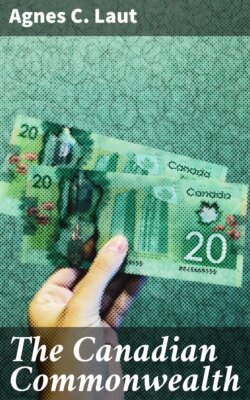Читать книгу The Canadian Commonwealth - Agnes C. Laut - Страница 20
На сайте Литреса книга снята с продажи.
IV
ОглавлениеBefore digging down to the subterranean springs of Canadian loyalty, we must take emphatic cognizance of several facts. Canada, while not a republic, is one of the most democratic nations in the world. Practically every man of political, financial or industrial prominence in Canada to-day came up by the shirt-sleeve route in one generation. If there is an exception to this statement—and I know every part of Canada almost as well as I know my own home—I do not know it. Sifton, Van Horne, MacKenzie, Mann, Laurier, Borden, Foster, the late Sir John Macdonald—all came up from penniless boyhood through their own efforts to what Canadians rate as success. I said "what Canadians rate as success." I did not say to affluence, for Canadians do not rate affluence by itself as success. Laurier, Foster, Sir John Macdonald—each began as a poor man. Sifton began life as a penniless lawyer. Van Horne got his foot on the first rung of the ladder hustling cars for troops in the Civil War. MacKenzie of Canada Northern fame began with a trowel; Dan Mann with an ax in the lumber woods at a period when wages were a dollar and twenty-five cents a day; Laurier with a lawyer's parchment and not a thing else in the world. Foster, the wizard of finance, taught his first finance in a schoolroom. And so one might go on down the list of Canada's great. Unless I am gravely mistaken the richest industrial leader of Ontario began life in a little bake shop, where his wife cooked and he sold the wares; and the richest man in the Canadian West began with a pick in a mine. I doubt if there is a single instance in Canada of a public man whose family's security from want traces back prior to 1867.
